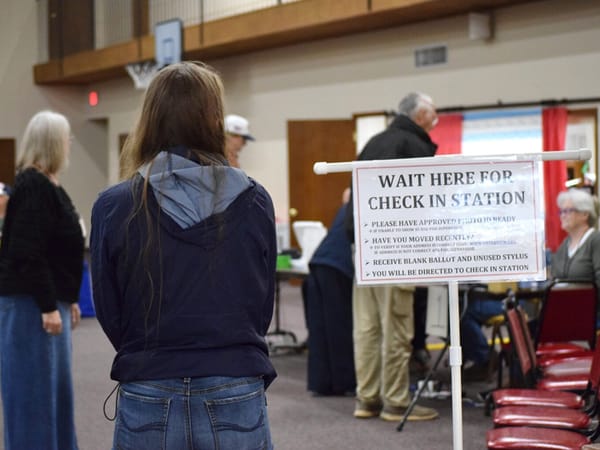The Ten Commandments Fight That Exposes Arkansas Cultural Divide
A federal judge has ordered the removal of Ten Commandments displays in an Arkansas school district, highlighting a growing divide between Christian conservatism and constitutional concerns in the state.

Christian conservatism has been deeply rooted in Arkansas politics for decades. Even as liberal and secular movements grow in other parts of the country, the state has remained strongly anchored in Christian political influence. Governor Sarah Huckabee Sanders has recognized the strength of this influence and has taken a more assertive role in advancing Christian conservative policies. One significant example is the law requiring that the Ten Commandments be displayed in schools and other public spaces. This initiative, however, has faced increasing scrutiny and legal challenges from the courts.
The clash between the state government and the judiciary has sharply divided public opinion, with each new development resonating across communities. This divide became more visible in the latest incident when, on Friday, a federal judge ordered the removal of Ten Commandments posters from the Lakeside School District. Just two days earlier, the same judge had approved the addition of the Garland County School District to a lawsuit challenging the state law requiring such displays. These rulings have triggered strong reactions from both supporters and critics.
Supporters, primarily conservative Republicans, argue that the displays offer a moral foundation to address modern crimes and reflect the nation’s historical origins. Critics, including liberals and secular organizations, counter that the first three commandments endorse a specifically Christian faith and therefore violate the Establishment Clause of the U.S. Constitution. The legal dispute remains ongoing, with the federal judiciary increasingly focused on the law’s constitutional implications.
Legal Challenges Against Act 573
The moment Act 573 of 2025 became law, it sparked a legal firestorm. In June, seven families from Northwest Arkansas, spanning both religious and nonreligious backgrounds, filed a lawsuit challenging its constitutionality. They contended that the law violated the First Amendment of the U.S. Constitution, pointing to the Establishment Clause, which bars government endorsement of religion, and the Free Exercise Clause, which shields individuals from government interference in their religious practices.
In August, U.S. District Judge Timothy L. Brooks intervened to block the law’s enforcement in four Northwest Arkansas districts: Bentonville, Fayetteville, Siloam Springs, and Springdale. The case intensified when Brooks added the Conway School District as a defendant, elevating a temporary restraining order into a preliminary injunction that required all Ten Commandments displays to be removed from schools across the district.
Most recently, on Wednesday, Brooks approved adding Lakeside School District No. 9 in Garland County as a defendant, as well as Christine Benson and her minor child as plaintiffs. Then, just two days later, the court issued a temporary restraining order blocking enforcement of Act 573 in the district and requiring the removal of all Ten Commandments displays by 5 p.m. Monday.
In his ruling, Brooks stated that the Lakeside plaintiffs are in the same legal position as those in the earlier lawsuit, advancing identical arguments, claiming similar constitutional harm, and seeking the same relief.
The court’s rapid response, coming less than 24 hours after the plaintiffs’ request, marks the third federal intervention blocking school districts from implementing Act 573. The ruling reaffirms that the law violates First Amendment protections for religious freedom and the separation of church and state, raising long-standing questions about religious endorsement in public education.
Divided Public Response
Reactions to the court’s decisions have been sharply divided. Supporters of the law argue that the Ten Commandments hold historical significance because they influenced the nation’s founders and legal system. Many assert that the commandments represent a core of moral principles, while opposing voices, including some critics, secular groups, and religious minorities, view the law as an inappropriate imposition of religion in public schools.
Rachel Laser, president and CEO of Americans United for Separation of Church and State, stated: “All Arkansas public school districts should heed the court’s clear warning: Displaying the Ten Commandments in classrooms is ‘obviously unconstitutional.’”
John Williams, legal director of the Arkansas ACLU, said the order is a clear reminder that public schools cannot impose religion on students. Heather L. Weaver, senior counsel for the ACLU’s Program on Freedom of Religion and Belief, explained that the order ensures their client and all Lakeside students will no longer have to follow government-imposed scriptural displays as a condition of attending public school. Annie Laurie Gaylor, co-president of the Freedom From Religion Foundation, added that the decision makes it unmistakably clear to all public schools that promoting religion to students will not be allowed.
Supporters of the law remain firm in their stance, and the spokesperson for Attorney General Tim Griffin said they will continue to vigorously defend it.
Governor Sanders issued a statement regarding the halting of Ten Commandments displays in schools: “In Arkansas, we do in fact believe that murder is wrong and stealing is bad. It is entirely appropriate to display the Ten Commandments, the basis of all Western law and morality, as a reminder to students, state employees, and every Arkansan who enters a government building.”
Defendants and the attorney general’s office, which intervened in the case, have until November 3 to submit briefs addressing why the existing preliminary injunction should not be modified to include Lakeside School District as a defendant.
Implications for Arkansas
As the Republican-led state government continues to promote clear Christian values, the courts have indicated that legal limits must be upheld. The passage and enforcement of Act 573, along with the resulting legal battle and the responses it has generated, have highlighted a broader cultural divide in Arkansas over religion in public spaces, particularly in public education. The clash between the government and the courts is expected to continue in the coming days.





